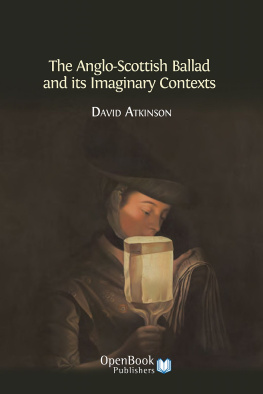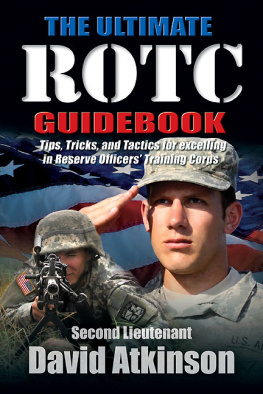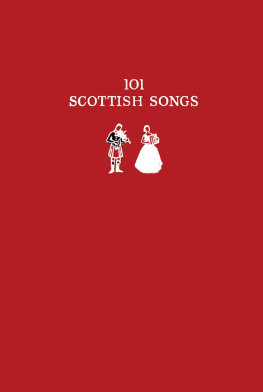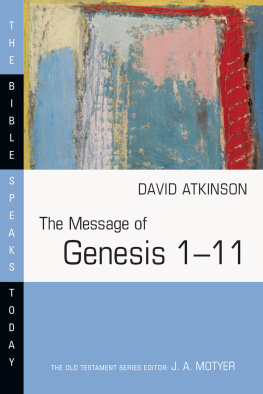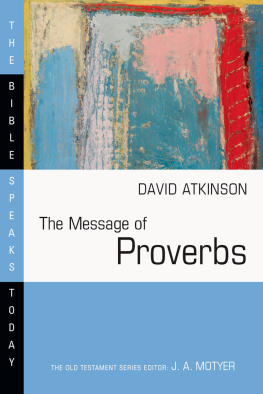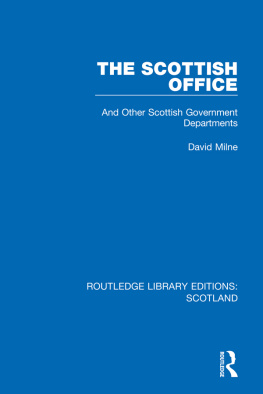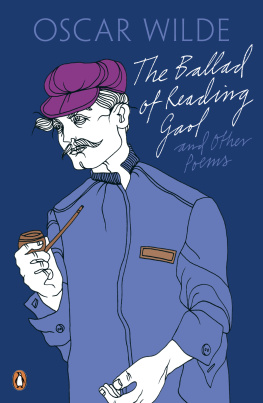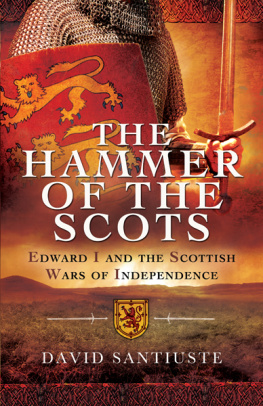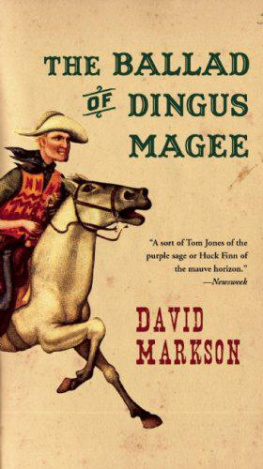David Atkinson - The Anglo-Scottish Ballad and its Imaginary Contexts
Here you can read online David Atkinson - The Anglo-Scottish Ballad and its Imaginary Contexts full text of the book (entire story) in english for free. Download pdf and epub, get meaning, cover and reviews about this ebook. year: 2019, publisher: Open Book Publishers, genre: Art. Description of the work, (preface) as well as reviews are available. Best literature library LitArk.com created for fans of good reading and offers a wide selection of genres:
Romance novel
Science fiction
Adventure
Detective
Science
History
Home and family
Prose
Art
Politics
Computer
Non-fiction
Religion
Business
Children
Humor
Choose a favorite category and find really read worthwhile books. Enjoy immersion in the world of imagination, feel the emotions of the characters or learn something new for yourself, make an fascinating discovery.
- Book:The Anglo-Scottish Ballad and its Imaginary Contexts
- Author:
- Publisher:Open Book Publishers
- Genre:
- Year:2019
- Rating:4 / 5
- Favourites:Add to favourites
- Your mark:
- 80
- 1
- 2
- 3
- 4
- 5
The Anglo-Scottish Ballad and its Imaginary Contexts: summary, description and annotation
We offer to read an annotation, description, summary or preface (depends on what the author of the book "The Anglo-Scottish Ballad and its Imaginary Contexts" wrote himself). If you haven't found the necessary information about the book — write in the comments, we will try to find it.
David Atkinson: author's other books
Who wrote The Anglo-Scottish Ballad and its Imaginary Contexts? Find out the surname, the name of the author of the book and a list of all author's works by series.
The Anglo-Scottish Ballad and its Imaginary Contexts — read online for free the complete book (whole text) full work
Below is the text of the book, divided by pages. System saving the place of the last page read, allows you to conveniently read the book "The Anglo-Scottish Ballad and its Imaginary Contexts" online for free, without having to search again every time where you left off. Put a bookmark, and you can go to the page where you finished reading at any time.
Font size:
Interval:
Bookmark:

- Publisher: Open Book Publishers
- Year of publication: 2014
- Published on OpenEdition Books: 29 November 2016
- Serie: OBP collection
- Electronic ISBN: 9782821876354

http://books.openedition.org
- ISBN: 9781783740277
- Number of pages: xviii + 209
ATKINSON, David. The Anglo-Scottish Ballad and its Imaginary Contexts. New edition [online]. Cambridge: Open Book Publishers, 2014 (generated 05 mai 2019). Available on the Internet: . ISBN: 9782821876354.
Open Book Publishers, 2014
Creative Commons - Attribution 4.0 International - CC BY 4.0
This is the first book to combine contemporary debates in ballad studies with the insights of modern textual scholarship. Just like canonical literature and music, the ballad should not be seen as a uniquely authentic item inextricably tied to a documented source, but rather as an unstable structure subject to the vagaries of production, reception, and editing.
Among the matters addressed are topics central to the subject, including ballad origins, oral and printed transmission, sound and writing, agency and editing, and textual and melodic indeterminacy and instability.
While drawing on the time-honoured materials of ballad studies, the book offers a theoretical framework for the discipline to complement the largely ethnographic approach that has dominated in recent decades. Primarily directed at the community of ballad and folk song scholars, the book will be of interest to researchers in several adjacent fields, including folklore, oral literature, ethnomusicology, and textual scholarship.
The following abbreviations are used throughout for standard editions and reference works:
CSD: Concise Scots Dictionary, ed. Mairi Robinson (Edinburgh: Polygon at Edinburgh, 1999).
DSL: Dictionary of the Scots Language/Dictionar o the Scots Leid, available at http://www.dsl.ac.uk/dsl/ [DSL-DOST: Dictionary of the Older Scottish Tongue entries; DSL-SND: Scottish National Dictionary entries].
EDD: The English Dialect Dictionary, ed. Joseph Wright, 6 vols (London: Henry Frowde, 18981905).
ESPB: Francis James Child, ed., The English and Scottish Popular Ballads, 5 vols (Boston: Houghton, Mifflin, 188298).
ESTC: English Short Title Catalogue, available at http://estc.bl.uk
OED: Oxford English Dictionary, available at http://www.oed.com
Child numbers: refer to items in ESPB.
Roud numbers: refer to items in the Roud Folk Song Index and Broadside Index, available at http://vwml.org.uk/search/search-roud-indexes
Bodleian Library broadside ballads are available at http://ballads.bodleian.ox.ac.uk
All web addresses cited, and Digital Object Identifiers (DOIs) in the Select Bibliography, were accessed prior to publication on 12/13 February 2014 and were valid at that date.
1.1 Enos White and his wife, outside Crown Cottage, Axford, Hampshire. Provenance unknown. 2
5.1 Carpenter Collection, Photo 101, James Madison Carpenter sitting in his Austin Roadster. Courtesy of the American Folklife Center at the Library of Congress, Washington, DC, USA. 102
5.2 Carpenter Collection, MS p. 08356. Courtesy of the American Folklife Center at the Library of Congress, Washington, DC, USA. 106
5.3 Joseph Taylor, Lord Bateman, transcribed by Percy Grainger, Journal of the Folk-Song Society, 3.3 (no. 12) (1908), 19293. Courtesy of the English Folk Dance and Song Society. 114115
6.1 Carpenter Collection, MS p. 04267. Courtesy of the American Folklife Center at the Library of Congress, Washington, DC, USA. 143
7.1 Carpenter Collection, MS pp. 0438404387. Courtesy of the American Folklife Center at the Library of Congress, Washington, DC, USA. 156157
8.1 Carpenter Collection, MS pp. 0440304404. Courtesy of the American Folklife Center at the Library of Congress, Washington, DC, USA. 176
The imaginary in the title of this volume is quite deliberate. The ballad and its imagined contexts, with its echoes of Benedict Andersons imagined communities, Georgina Boyess imagined village, and Eric Hobsbawm and Terence Rangers invented traditions, might have evoked an oral, ballad-singing community of a kind that owes as much to the broad thrust of Romanticism as it does to a historical back-projection from (limited) evidence drawn from the folk song revivals of the twentieth century. The imaginary contexts of the title, in contrast, refer to the abstract ideas that are the necessary counterpart of any attempt to describe the ballad be it at the level of genre or of the individual literary/musical item in its social and historical context in terms either of ontology or of textual constitution.
Conceptually, there is a danger that the ballad as abstract idea might appear perilously close to the sort of conflationary, idealist notion of ballad editing that characterized publications of a much earlier period. Editions such as Thomas Percys Reliques of Ancient English Poetry, Walter Scotts Minstrelsy of the Scottish Border, and William Motherwells Minstrelsy: Ancient and Modern drew on and compounded different texts in order to achieve a comprehensive and complete, ideal version of each individual ballad. They have been much reviled for doing so, although as an exercise in best-text editing, duly described and documented, this could still be a defensible approach. However, it is certainly true that it falls foul of the ethnographic turn that ballad studies have taken since that time.
Both Scott and Motherwell came to reject their own editorial practices and instead to laud the discrete integrity, and poetic and musical value, of each separate ballad instance, or version. Subsequently, mediated by the practice of the Danish editor Svend Grundtvig, this insight provided the theoretical basis for Francis James Childs standard edition of The English and Scottish Popular Ballads. The type/version paradigm embodied therein represents the distinctive contribution of ballad studies to editing theory. In short, the ballad type is identified as the abstract sum of all actual and possible manifestations, or versions, of what is recognizably the same thing. The definition is notably circular but it does mostly work in practice because there turns out to be a high level of seemingly inherent stability in ballad narratives and melodies, which makes it possible, most of the time, to recognize quite intuitively which items belong together.
Since it is frequently possible to ascribe individual versions to individual sources, this type/version paradigm lends itself very neatly to the ethnographic orientation. In what has been rather grandly termed the post-Child era of scientific folklore, a premium attaches to the precise recording, attribution, and presentation of the collected item. And yet there is already a paradox here, because the type/version paradigm has also, almost uninvited, introduced an abstract dimension into the discussion. For the version cannot exist without inherent reference to the type and so while on the one hand the items uniqueness is being identified, on the other it is simultaneously being absorbed. Just as the version is a constituent part of the type, so the version itself derives from the type.
Font size:
Interval:
Bookmark:
Similar books «The Anglo-Scottish Ballad and its Imaginary Contexts»
Look at similar books to The Anglo-Scottish Ballad and its Imaginary Contexts. We have selected literature similar in name and meaning in the hope of providing readers with more options to find new, interesting, not yet read works.
Discussion, reviews of the book The Anglo-Scottish Ballad and its Imaginary Contexts and just readers' own opinions. Leave your comments, write what you think about the work, its meaning or the main characters. Specify what exactly you liked and what you didn't like, and why you think so.

